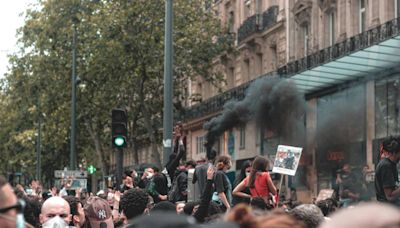Search results
The First Amendment protects freedoms of religion, speech, press, assembly, and petition. It limits the powers of Congress to regulate or favor any religion or restrict any expression.
- Bill of Rights
First Amendment [Religion, Speech, Press, Assembly, Petition...
- Fighting Words
Fighting words are words meant to incite violence such that...
- Establishment Clause
The First Amendment's Establishment Clause prohibits the...
- Libel
Libel is a method of defamation expressed by print, writing,...
- Free Exercise Clause
The First Amendment applied only to the U.S. Congress upon...
- Brandenburg Test
The Brandenburg test was established in Brandenburg v. Ohio,...
- Obscenity
Obscenity is a category of speech that is not protected by...
- Defamation
Defamation is a statement that injures a third party's...
- Slander
Slander is a false statement, usually made orally, which...
- Media
Media Law: Overview Media law refers to the regulations of...
- Bill of Rights
The First Amendment protects freedom of religion, speech, press, assembly, and petition from government interference. It was adopted in 1791 as part of the Bill of Rights, and has been interpreted and applied by the Supreme Court in various cases.
The First Amendment protects the freedom of religion, speech, press, assembly and petition. Learn about its history, interpretation and application from the official website of the U.S. Congress.
- First Amendment
- Flag Burning
- When Isn’T Speech Protected?
- Freedom of Expression
- Free Speech in Schools
- Sources
- GeneratedCaptionsTabForHeroSec
In the United States, the First Amendmentprotects freedom of speech. The First Amendment was adopted on December 15, 1791 as part of the Bill of Rights—the first ten amendments to the United States Constitution. The Bill of Rightsprovides constitutional protection for certain individual liberties, including freedoms of speech, assembly and worship....
While freedom of speech pertains mostly to the spoken or written word, it also protects some forms of symbolic speech. Symbolic speech is an action that expresses an idea. Flag burning is an example of symbolic speech that is protected under the First Amendment. Gregory Lee Johnson, a youth communist, burned a flag during the 1984 Republican Nation...
Not all speech is protected under the First Amendment. Forms of speech that aren’t protected include: 1. Obscene material such as child pornography 2. Plagiarism of copyrighted material 3. Defamation (libel and slander) 4. True threats Speech inciting illegal actions or soliciting others to commit crimes aren’t protected under the First Amendment, ...
The Supreme Court has interpreted artistic freedom broadly as a form of free speech. In most cases, freedom of expression may be restricted only if it will cause direct and imminent harm. Shouting “fire!” in a crowded theater and causing a stampede would be an example of direct and imminent harm. In deciding cases involving artistic freedom of expr...
In 1965, students at a public high school in Des Moines, Iowa, organized a silent protest against the Vietnam Warby wearing black armbands to protest the fighting. The students were suspended from school. The principal argued that the armbands were a distraction and could possibly lead to danger for the students. The Supreme Court didn’t bite—they ...
What does free speech mean?; United States Courts. Tinker v. Des Moines; United States Courts. Freedom of expression in the arts and entertainment; ACLU.
Learn about the origins, First Amendment and landmark cases of freedom of speech in the United States. Find out what types of speech are protected and when they are not under U.S. law.
Dec 4, 2017 · The First Amendment protects the freedom of speech, religion, press, assembly and petition. Learn about its history, interpretation and landmark Supreme Court cases.
First Amendment. Congress shall make no law respecting an establishment of religion, or prohibiting the free exercise thereof; or abridging the freedom of speech, or of the press; or the right of the people peaceably to assemble, and to petition the Government for a redress of grievances. See Teaching Resources.
People also ask
What does the First Amendment say about freedom of speech?
What does the constitution say about freedom of speech?
Does the First Amendment prohibit free speech?
What does free speech mean?
The First Amendment protects religious liberty and freedom of speech, press, assembly, and petition. Learn about the history, interpretation, and application of the Religion and Free Speech Clauses, and their relationship with other freedoms.



